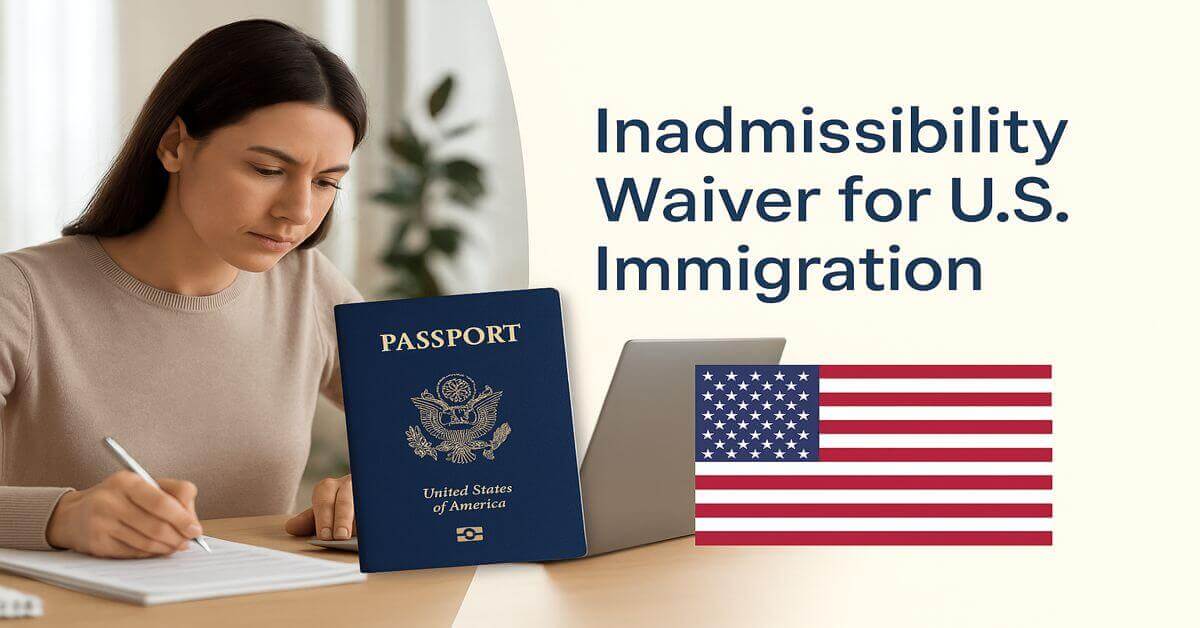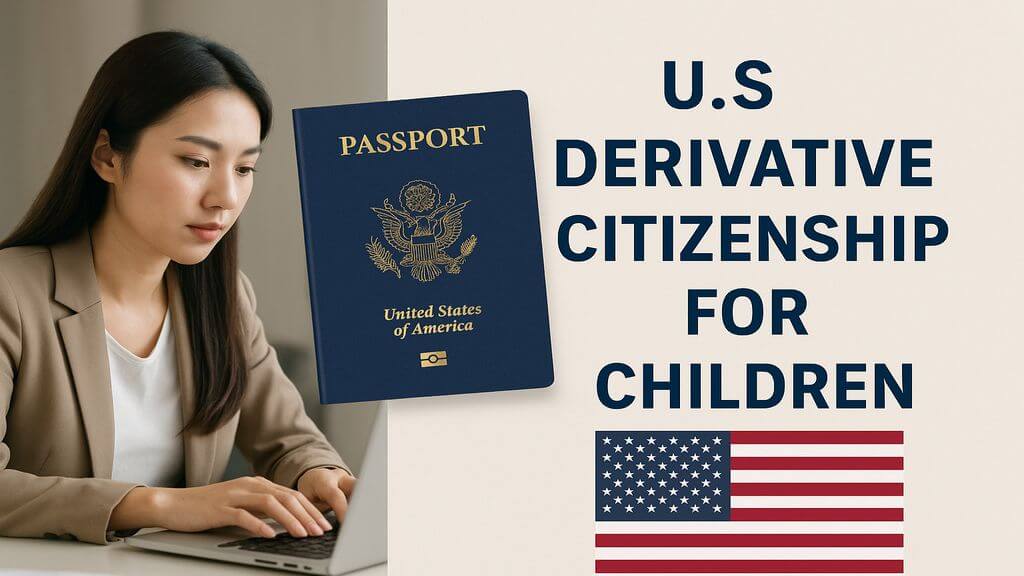If you’re planning to immigrate to the United States, one major setback you may encounter is being found inadmissible under U.S. immigration law. This means you are barred from entering the U.S. or from adjusting your status to become a lawful permanent resident.
Fortunately, certain grounds of inadmissibility may be waived by applying for a waiver of inadmissibility using either Form I-601 or Form I-601A, depending on your circumstances.
This guide outlines key details, requirements, application processes, and documentation for each form to help you navigate the waiver process successfully.
Check Also: U.S Visa Overstay Forgiveness Rules
Introduction:
The Immigration and Nationality Act (INA) lists several grounds for inadmissibility. These include:
- Health-related issues
- Criminal history
- National security concerns
- Risk of becoming a public charge
- Immigration violations (e.g., fraud or unlawful presence)
- Prior removal or deportation
If you are deemed inadmissible, your visa or green card application will be denied—unless you qualify for and are granted a waiver.
Form I-601: Waiver for Applicants Outside the U.S. or Certain Visa Types:
- Used when you’ve been declared inadmissible by a U.S. consular officer abroad or in certain adjustment of status cases.
- Applies to visa categories such as:
- Immigrant Visas
- K and V Nonimmigrant Visas
- TPS, VAWA, SIJ, and others
- Must include evidence of extreme hardship to a qualifying U.S. citizen or lawful permanent resident (LPR) relative.
Filing Fee: $1,050
Average Processing Time: 12–15 months
Eligibility for Form I-601A:
You may file if:
- You are in the U.S. and at least 17 years old.
- You are inadmissible only for unlawful presence.
- You have a pending immigrant visa case with the U.S. Department of State.
- You can show extreme hardship to your U.S. citizen or LPR spouse or parent (not children, siblings, or other relatives).
Form I-601A: Provisional Unlawful Presence Waiver (Inside the U.S.):
- For individuals physically present in the U.S. who are eligible for an immigrant visa but are inadmissible due to unlawful presence.
- Designed to reduce family separation by allowing applicants to request a waiver before leaving the U.S. for a visa interview abroad.
- Only available to those with qualifying U.S. citizen or LPR spouse or parent.
Filing Fee: $795
Average Processing Time: 8.5–11.5 months
Eligibility for Form I-601:
You may file if:
- You are applying for a visa or green card and were found inadmissible.
- You’re outside the U.S. and attended a visa interview.
- You are applying for TPS, SIJ, or benefits under VAWA or NACARA.
- You can demonstrate that denying your application would cause extreme hardship to a qualifying relative.
Extreme Hardship:
USCIS defines extreme hardship as suffering that goes beyond the typical consequences of family separation. You must demonstrate how denial of the waiver would significantly affect your qualifying relative, either:
- If they remain in the U.S. without you, or
- If they relocate abroad with you.
Supporting Evidence to Include:
To strengthen your case, submit comprehensive documentation in these categories:
1. Medical Evidence
- Doctor’s letters explaining conditions, treatment needs, and your caregiving role
- Prescription records
- Mental health evaluations if applicable
2. Financial Records
- Tax returns and pay stubs
- Proof of joint financial obligations
- Cost-of-living comparisons (U.S. vs. home country)
3. Special Needs or Caregiving
- Records of children’s education needs or eldercare responsibilities
- Letters from teachers, therapists, or doctors
4. Country Conditions
- State Department travel warnings
- Human rights reports or crime statistics
- Data showing economic hardship, instability, or health care limitations
5. Affidavits and Personal Statements
- A detailed statement from your qualifying relative explaining the hardship
- Letters from community members, medical professionals, or clergy
6. Evidence of U.S. Ties
- Proof of property ownership, community involvement, employment, or education
- Marriage and birth certificates
How to Apply for Inadmissibility Waiver for U.S. Immigration 2026?
Filing Form I-601 (Outside U.S.)
- Attend your visa interview and receive a finding of inadmissibility.
- File Form I-601 with USCIS, along with supporting evidence.
- USCIS will notify you and the consular officer of the decision.
- If denied, you may appeal using Form I-290B.
Filing Form I-601A (Inside U.S.)
- Confirm you meet eligibility and have a pending immigrant visa case.
- File Form I-601A and attend biometrics appointment.
- Wait for USCIS decision.
- If approved, leave the U.S. for your visa interview abroad with waiver in hand.
Note: Approval of Form I-601A does not guarantee visa issuance. You may still be denied based on other factors during consular processing.
Final Tips for Success:
- Carefully organize your application with a cover letter and table of contents.
- Use well-labeled exhibits for evidence.
- Make your hardship case clear and compelling—quality matters more than quantity.
- All foreign-language documents must have certified English translations.
Conclusion:
Facing inadmissibility doesn’t mean the end of your U.S. immigration journey. Form I-601 and Form I-601A provide critical pathways for eligible individuals to overcome legal barriers and continue their path to lawful permanent residency.
Make sure to consult an immigration attorney or accredited representative for personalized legal guidance. Always refer to the official USCIS website for the most updated forms and instructions.
Frequently Asked Questions:
-
Can I remain in the U.S. while Form I-601A is pending?
Yes. Filing Form I-601A does not change your immigration status, but you can legally remain in the U.S. while it’s being processed, as long as you comply with USCIS requests and appointments (e.g., biometrics).
-
What is “extreme hardship,” and who must suffer it?
“Extreme hardship” refers to serious difficulties your U.S. citizen or lawful permanent resident spouse or parent would experience if you are denied entry. This can include financial, medical, emotional, or other hardships. Children do not qualify as “qualifying relatives” for this purpose under Form I-601A.
-
What is an inadmissibility waiver for U.S. immigration?
An inadmissibility waiver allows certain individuals who are otherwise barred from entering or adjusting status in the U.S. due to legal violations (e.g., unlawful presence, fraud, criminal history) to request permission to proceed with their immigration application despite those grounds.






